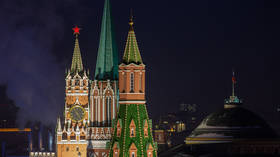Moscow toughens response to Western sanctions

Russian President Vladimir Putin signed a decree on Wednesday that introduces a temporary procedure for the distribution of profits of domestic firms to those from ‘unfriendly countries’ to whom such payments are due. The document was published on the official government portal for legal information.
In particular, the document says that “if a decision is made on the distribution of profits,” the payment of such profits to what are called "foreign creditors" will now be carried out in accordance with the presidential decree signed in early March.
According to the document, if a Russian firm decides to distribute profits, residents from unfriendly countries will by default receive their share in a special Type-C bank account. Funds cannot be withdrawn from such an account but can only be directed to a limited range of purposes, such as paying taxes or buying OFZs. However, the Central Bank and Ministry of Finance may issue a separate permit to transfer funds to a regular account.
In early March, Putin signed a decree introducing a temporary procedure for fulfilling obligations to foreign creditors from countries that have imposed sanctions against Russia. This applied to debt obligations (credits, loans, bonds) of Russian regions and municipalities, as well as individuals and legal entities that make payments totaling more than 10 million rubles per month ($150,000), or the hard-currency equivalent.
The decree meant that a Russian borrower having hard-currency obligations to foreign creditors has the right to pay them in rubles. It also obliged foreign creditors (or the nominal holders of securities) to open Type-C accounts for loans at Russian banks. To meet their obligations related to the issuance of securities, a Russian borrower can open such an account with Russia’s central securities depositary. The borrower can then transfer funds in the ruble equivalent at the Central Bank’s exchange rate on the day the payment is made.
For more stories on economy & finance visit RT's business section












